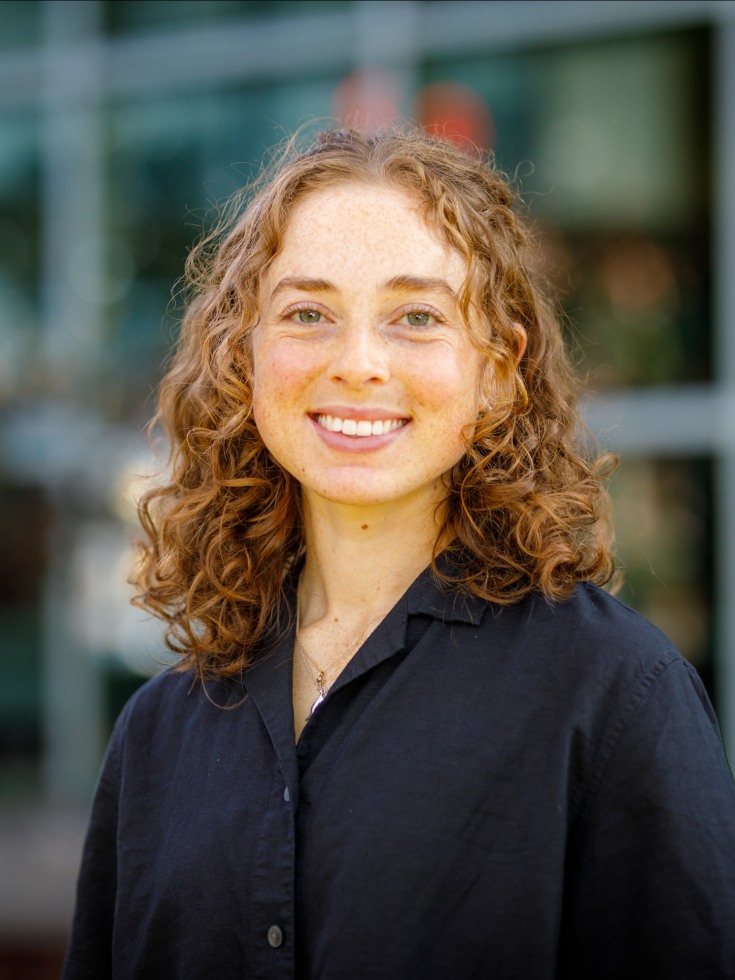This past spring, in its 117th season, the historic Barker Playhouse staged a production of Into the Woods, the much-loved musical by Stephen Sondheim and James Lapine. In reimagining classic fairy tales such as Cinderella, Little Red Riding Hood, Jack and the Beanstalk and Rapunzel, the play suggests: Be careful what you wish for.
“It’s about what happens when you get what you want, and whether that actually brings happiness,” said Anna Barcellos, who starred in the Barker production as Cinderella. “It’s about community, consequences and the idea that life doesn’t always go according to storybook plans.”
In addition to her commitment to performance, Anna is also a doctoral student in the School of Public Health, focused on Health Services Research. She wrapped up her Into the Woods role in April while simultaneously completing the first year of her Ph.D.
How did she manage these two intensive tasks at once?
Anna’s been following a dual path of theater and science since growing up in California's Bay Area. Alongside her early love of singing and performing, she found inspiration from her mother, Professor Lisa Barcellos, a genetic epidemiologist at UC Berkeley who role-modeled a vocation in public health.
As an undergraduate, Anna performed in student-run theater while committing academically to the sciences. She graduated from UC Berkeley with a B.S. in molecular environmental biology and a B.A. in public health. She then received a Master of Public Health from the UC Berkeley School of Public Health with a focus on epidemiology and biostatistics.
At Brown, Anna hopes to study structural drivers of inequality in health care, with an emphasis on understanding the barriers within the health care system that prevent people from accessing care. She is currently looking at cancer care in Medicare and Medicare Advantage, working towards examining how system-level factors shape equity in cancer treatment and outcomes.
We spoke with Anna Barcellos about her work and how she managed to juggle musical theater while working towards a doctorate in public health.
